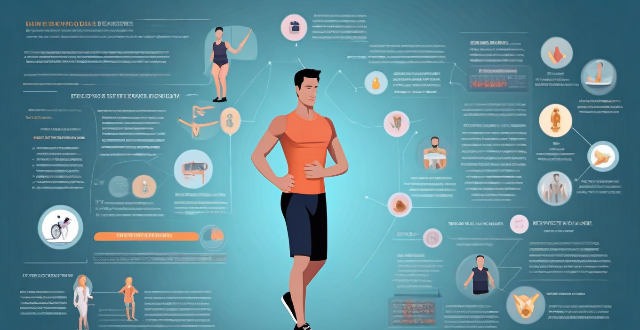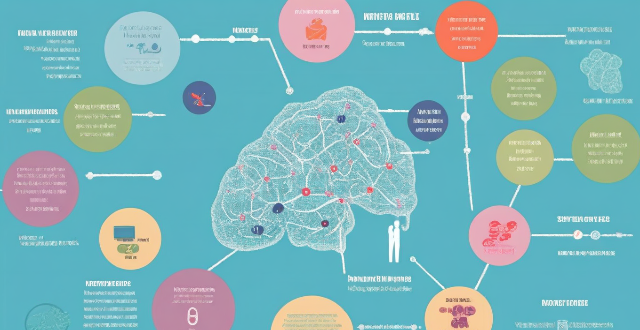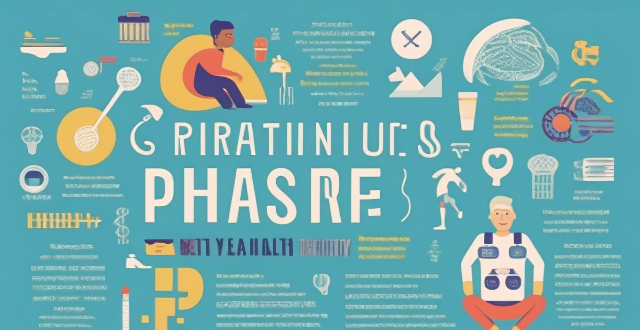Physical Quality

How does an active lifestyle affect sleep quality ?
The text discusses how an active lifestyle can positively affect sleep quality. It outlines the benefits of physical activity for sleep, such as improved sleep onset, increased deep sleep, reduced sleep disturbances, enhanced REM sleep, and better sleep efficiency. The mechanisms underlying this relationship are also explored, including thermoregulation, stress reduction, neurotransmitter regulation, circadian rhythm alignment, and muscle relaxation. Practical tips for incorporating physical activity into one's routine are provided, such as choosing appropriate activities, establishing a routine, avoiding late-night workouts, being mindful of intensity, and incorporating relaxation techniques. Overall, the text emphasizes the importance of regular exercise for improving sleep quality and suggests ways to optimize its benefits.

How can urban green spaces improve residents' quality of life ?
Urban green spaces, including parks and community gardens, play a key role in enhancing the quality of life for city residents by providing physical, mental, social, and environmental benefits. Physical health is improved through increased physical activity, better air quality, and mitigation of the heat island effect. Mental health benefits include stress reduction, enhanced mood, and improved cognitive function. Social well-being is boosted through community building, recreational opportunities, and educational value. Environmentally, urban green spaces contribute to biodiversity conservation, water management, and carbon sequestration. These areas are essential for comprehensive wellness in urban environments and should be a focus in future city planning.

How does sleep quality affect athletic performance and health ?
This text explains how sleep quality affects athletic performance and overall health. It emphasizes the importance of sleep for physical recovery, mental well-being, and immune system support in athletes. Poor sleep quality can lead to decreased performance, increased injury risk, and mental health issues. The text provides tips for improving sleep quality, such as establishing a consistent sleep schedule and creating a comfortable sleep environment. Adequate sleep is crucial for optimal athletic performance and overall health.

Does regular physical activity prevent burnout ?
Regular physical activity can help prevent burnout by boosting mood, reducing stress, improving sleep quality, enhancing cognitive function, and promoting social interaction. However, it should be part of a broader approach to managing stress and preventing burnout.

Can meditation or mindfulness practices enhance sleep quality ?
Meditation and mindfulness practices have been gaining popularity for their potential benefits on mental and physical health, including improving sleep quality. These practices involve focusing one's attention on the present moment while calmly acknowledging and accepting one's feelings, thoughts, and bodily sensations. Meditation and mindfulness can enhance sleep quality by reducing stress and anxiety, promoting relaxation, and increasing awareness of sleep habits. To practice meditation or mindfulness for better sleep, individuals should set aside time each day, choose a comfortable environment, focus on their breath, cultivate gratitude and positive thinking, and be patient and persistent in their practice.

What is the relationship between exercise, sleep quality, and emotional well-being ?
The text explores the interconnectedness of exercise, sleep quality, and emotional well-being. It outlines how physical activity enhances mood through endorphin release and long-term health benefits. Sleep quality is crucial for emotional processing and resilience against stress. Mutual benefits exist between exercise and sleep, with each improving the other. A holistic approach to health includes attention to all three components for optimal well-being.

How does exercise affect sleep patterns and quality ?
Exercise significantly influences sleep patterns and quality. Immediate effects include increased alertness and better body temperature regulation for sleep. Long-term, regular exercise improves sleep quality and regulates sleep patterns. Different types of exercise—aerobic, anaerobic, and mindful movements like yoga—all positively affect sleep but may require varying recovery times. The timing of exercise is crucial; morning workouts set the day's tone with minimal sleep interference, while late-night exercises can hinder sleep preparation. Tailoring workout routines to individual needs optimizes rest and overall well-being.

Can exercise compensate for poor sleep quality in terms of cognitive function ?
The article discusses the importance of sleep for cognitive function and whether exercise can compensate for poor sleep quality. While exercise has benefits for cognitive function, it cannot fully replace the memory consolidation and emotion processing that occurs during sleep. Chronic sleep deprivation can lead to long-term changes in brain structure and function that may not be reversible through exercise alone. To maintain optimal cognitive function, both regular physical activity and good sleep habits are essential.

Can regular physical activity improve mental health ?
Regular physical activity can improve mental health by reducing the risk of depression and anxiety, enhancing self-esteem and cognitive function, improving sleep quality, and reducing stress. Practical recommendations for incorporating exercise into daily routines include starting small, finding enjoyable activities, setting realistic goals, making it social, incorporating strength training, staying consistent, listening to your body, and consulting with professionals.

How does regular exercise improve the quality of life ?
Regular exercise is vital for a healthy lifestyle, enhancing physical and mental well-being significantly. It strengthens the immune system, controls weight, prevents diseases, and increases energy levels. Mentally, it reduces stress, improves mood, boosts self-esteem, and enhances brain function. Socially, it promotes interaction, provides a sense of community, and encourages healthy competition. Regular exercise is an investment that pays lifelong dividends.

How does physical exercise contribute to mental well-being ?
The text discusses how physical exercise contributes to mental well-being by releasing endorphins, boosting self-esteem, improving sleep quality, facilitating social interaction, and enhancing cognitive function. Regular physical activity can lead to long-term improvements in mental health, including reduced stress, anxiety, and depression, as well as better emotional stability and overall mood. Engaging in group sports or exercise classes provides opportunities for social interaction, which is essential for mental well-being, while achieving fitness goals can boost self-esteem and self-confidence. Better sleep patterns from exercise can lead to improved cognitive function and emotional regulation, while enhanced cognition may aid in the management of mental health conditions. Incorporating regular physical activity into your routine can promote mental well-being through these various mechanisms.

How does physical activity impact public health policies ?
The text discusses the importance of physical activity in promoting individual and public health. It outlines how regular exercise can prevent chronic diseases, improve mental health, and aid in weight management. The text then explains how these benefits influence public health policies, including the development of programs promoting physical activity, funding for research, and public awareness campaigns. Overall, it emphasizes the need for governments to promote physical activity through various initiatives, aiming to create a society where being active is a way of life.

What role does physical exercise play in boosting mental focus ?
Physical exercise is not only beneficial for our physical health, but it also plays a crucial role in enhancing mental focus. Here's how: 1. Release of Endorphins: Regular exercise triggers the release of endorphins, which can help reduce stress and anxiety, leading to improved mental clarity and focus. 2. Increased Blood Flow to the Brain: Engaging in physical activities increases blood flow to the brain, delivering more oxygen and nutrients. This increased blood flow can help improve cognitive function, memory, and overall mental sharpness. 3. Better Sleep Quality: Exercise has been shown to promote better sleep quality and duration. Adequate sleep is essential for maintaining mental focus and concentration throughout the day. 4. Reduction of Stress and Anxiety: Physical activity helps lower levels of the body's stress hormones, such as cortisol. By reducing stress and anxiety, exercise allows individuals to maintain a clearer mind and stay focused on tasks at hand. 5. Enhanced Self-Confidence and Mood: Regular exercise can boost self-esteem and confidence, leading to a positive outlook on life. A positive mindset contributes to better mental focus and productivity. 6. Improved Cognitive Function: Studies have found that regular physical exercise can lead to improvements in various aspects of cognitive function, including attention, memory, and executive functions. These cognitive enhancements directly contribute to increased mental focus and concentration.

Can regular physical activity help in reducing stress and anxiety ?
Regular physical activity can help reduce stress and anxiety by promoting the release of endorphins, improving sleep quality, and boosting self-esteem. Aerobic exercises like running, swimming, or cycling are particularly effective because they increase heart rate and circulation, leading to improved oxygenation of the brain. Yoga and tai chi focus on breathing and relaxation techniques that can also help reduce stress and anxiety. The American Heart Association recommends at least 150 minutes of moderate-intensity aerobic exercise or 75 minutes of vigorous-intensity aerobic exercise per week for adults. Finding an exercise routine that works for you and that you enjoy is key to sticking with it over time.

What are the benefits of physical activity on brain health ?
Physical activity has numerous benefits for brain health, includingPhysical activity has numerous benefits for brain health, including risk of dementia, including improved cognitive function, reduced risk of dementia, and increased overall brain volume. Regular exercise increases blood flow to the brain, delivering nutrients and oxygen to neurons, reducing inflammation and oxidative stress, and enhancing neural plasticity through increased levels of BDNF. Additionally, physical activity improves mood, reduces symptoms of depression and anxiety, and improves sleep quality. Incorporating regular exercise into your lifestyle can help maintain a healthy mind and body.

Can regular physical activity prevent depression ?
Regular physical activity can reduce depression risk by releasing endorphins, improving sleep, and boosting self-esteem. Start with 30 minutes daily of activities like walking or swimming, and consider joining a fitness class for motivation. Gradually increase intensity and listen to your body to avoid overexertion.

Can regular physical activity reduce anxiety levels ?
Regular physical activity can help reduce anxiety levels by improving mood, reducing stress hormones, promoting better sleep, increasing self-esteem and confidence, and providing social support. Engaging in at least 30 minutes of moderate-intensity exercise per day can significantly reduce anxiety symptoms.

How does work-life balance impact women's physical health and well-being ?
The article discusses the impact of work-life balance on women's physical health and well-being, highlighting the following key points: 1. **Stress and Mental Health**: Work-life imbalance can lead to chronic stress, weakening the immune system and increasing the risk of mental health issues like anxiety and depression, which in turn can cause physical health problems. 2. **Physical Health**: An unbalanced lifestyle often results in a sedentary lifestyle and poor eating habits, leading to weight gain, obesity, and an increased risk of chronic diseases. 3. **Reproductive Health**: Excessive stress and unhealthy lifestyle habits can affect women's reproductive health, causing menstrual irregularities, infertility, and complications during pregnancy. 4. **Quality of Life**: Work-life imbalance can significantly impact a woman's quality of life, leading to feelings of dissatisfaction, reduced productivity, and strained relationships. Maintaining a work-life balance is crucial for ensuring that women's physical health and overall well-being are not compromised.

How can sports and physical activities help prevent internet gaming addiction ?
Sports and physical activities can help prevent internet gaming addiction by offering alternative forms of entertainment, promoting mental and physical well-being, and fostering social connections. Strategies for incorporating sports include setting fitness goals, choosing enjoyable activities, and involving family or friends to make it a sustainable part of one's lifestyle.

What are the most common pollutants measured in air quality monitoring ?
Air quality monitoring is crucial for identifying pollutants that can harm human health and the environment. The most common pollutants measured include particulate matter, nitrogen oxides, sulfur dioxide, carbon monoxide, ozone, and volatile organic compounds. These pollutants can cause respiratory problems, contribute to smog and acid rain, and have negative impacts on crops and vegetation. By tracking these pollutants, governments and organizations can take steps to reduce their emissions and improve air quality.

What are some creative ways to spend quality time with your child without using technology ?
Spending quality time with your child is crucial for their development and well-being. Here are some creative ways to do so without relying on technology: 1. Outdoor Adventures: Take nature walks or plan camping trips to explore the outdoors together. 2. Creative Activities: Encourage art projects and music making to foster creativity in your child. 3. Educational Games: Play board games that require critical thinking and work on puzzles together to improve cognitive abilities. 4. Physical Activities: Engage in sports or introduce yoga and meditation practices for physical and mental well-being. 5. Reading Together: Have storytime sessions and visit libraries regularly to foster a love for reading and learning.

How do weather conditions affect air quality ?
Weather conditions significantly affect air quality by influencing the dispersion, accumulation, and transformation of pollutants. High temperatures can increase ozone levels, while low temperatures can trap pollutants near the ground. Wind helps disperse pollutants, improving air quality, but calms can lead to pollutant buildup. Precipitation, like rain and snow, can wash pollutants from the air. High humidity promotes ozone formation but aids in particle removal, whereas low humidity inhibits some pollutants and suspends dust. Temperature inversions trap pollutants, degrading air quality, while cold fronts and storms can clean the air through winds and precipitation.

What is the relationship between physical activity, mental health, and peace ?
The text discusses the interconnected relationship between physical activity, mental health, and peace. Regular physical activity can reduce anxiety and depression, improve mood, and enhance cognitive function, which in turn fosters emotional stability, clear thinking, and empathy - qualities necessary for maintaining peace. Sports and group activities promote teamwork, respect for others, and community building, contributing to peaceful interactions. Therefore, understanding these connections can lead to conscious choices that improve individual lives and contribute to a more peaceful world.

How can people with disabilities incorporate physical activity to improve their mental well-being ?
Physical activity is crucial for everyone's mental well-being, including those with disabilities. Engaging in physical activities can help reduce stress, anxiety, and depression while improving mood, self-esteem, and overall quality of life. Here are some ways people with disabilities can incorporate physical activity into their lives to improve their mental well-being: start slowly and gradually increase intensity; find an appropriate exercise routine; set realistic goals; incorporate mindfulness techniques; seek support from peers and professionals; make it fun!

How do I know if the discounted items at Outlet Stores are of good quality ?
Outlet stores offer discounted items, but it's important to assess their quality before buying. Check for manufacturer defects, research brand reputation, compare prices with non-discounted items, and ask about return policies.

How does sports education contribute to physical fitness and overall health ?
This text discusses the importance of sports education in promoting physical fitness and overall health. It highlights various benefits such as improved cardiovascular health, muscular strength, weight management, mental well-being, social interaction, and injury prevention. The text emphasizes the role of sports education in fostering healthy lifestyle habits and reducing the risk of obesity-related health issues, heart diseases, and stroke. It also mentions the mental health benefits of engaging in sports activities, including reduced stress, anxiety, and depression. Finally, the text underscores the importance of sports education in developing teamwork skills, leadership qualities, and problem-solving abilities.

Are the products in sample sales of good quality ?
Sample sales are a popular way for retailers to clear out old inventory, showcase new products, and offer discounts to customers. However, the question remains: are the products in sample sales of good quality? In this article, we will explore this topic in detail. Factors affecting product quality in sample sales include the age of the product, condition of the product, quality control, and manufacturing defects. While there are pros to buying from sample sales such as discounted prices and unique finds, there are also cons such as limited selection and no returns or exchanges. To minimize risks associated with buying from sample sales, it is important to do research, inspect products carefully, ask questions, set realistic expectations, and be prepared to take risks. By following these tips, you can potentially score great deals on high-quality products from sample sales.

How does hydration affect physical activity ?
Hydration is crucial for physical activity, affecting performance, endurance, and well-being. It regulates body temperature through sweating and heat tolerance, supports energy production and recovery, lubricates joints, maintains blood volume for heart function, and ensures mental clarity. Dehydration can lead to decreased performance, impaired thermoregulation, cardiovascular strain, and reduced cognitive abilities. To maintain hydration during physical activity, strategies include pre-activity hydration, regular fluid intake during exercise, post-activity rehydration, electrolyte balance, monitoring urine color, listening to thirst signals, and avoiding diuretics.

How can parents balance work and providing quality education at home ?
Balancing work and providing quality education at home can be a challenging task for parents. However, with proper planning and execution, it is possible to achieve both goals effectively. In this article, we will discuss some strategies that parents can use to balance their work responsibilities while ensuring their children receive a high-quality education at home.